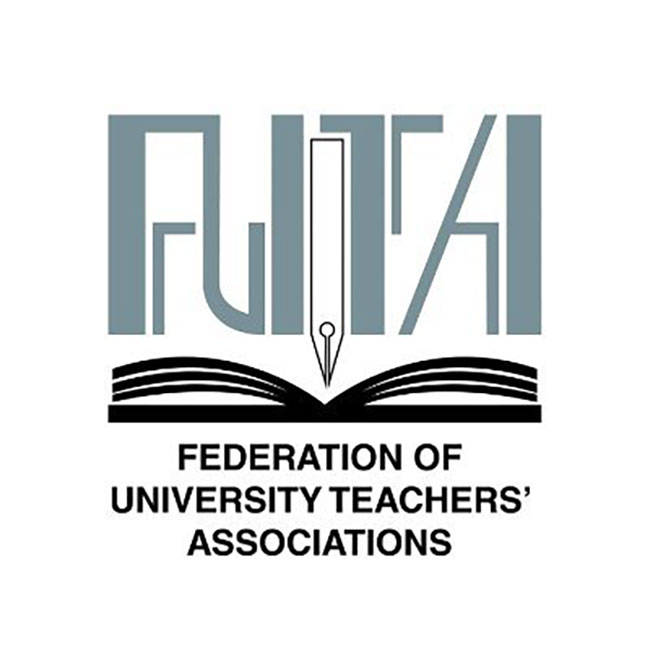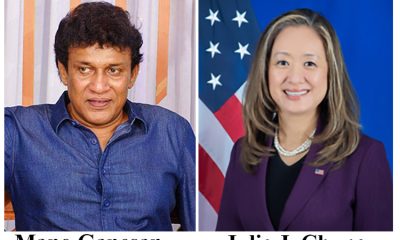News
FUTA asks govt. to stop undermining labour rights, exploiting retirement funds

The Federation of University Teachers’ Associations (FUTA) on Saturday called on the government to ensure that any far-reaching changes in education policy should only be initiated after obtaining a clear mandate from the people of the country.
A FUTA statement signed by its General Secretary Athulasiri Samarakoon said: The Federation of University Teachers’ Associations (FUTA) strongly condemns the recent actions of the Government; measures to undermine labour rights, cuts to retirement funds and privatization.
The Government is flagrantly insensitive to the pain and suffering of the working people as it takes forward policies that further dispossess them. We condemn the relentless attack on the hard-won democratic rights, undertaken with little consultation of the public and sustained through a systematic and ever-expanding strategy of silencing the citizenry.
The Government has passed a domestic debt restructuring plan in Parliament that directly undermines the retirement funds of working people, who are being asked to absorb the burden of debt that successive governments have wantonly accrued. Left out of such an onslaught are wealthy individuals and financial institutions, whose Treasury Bonds investment will remain untouched.
In contrast, every family who had expected some security from their Employees Provident Fund, Employees Trust Fund and other retirement funds to ensure survival when they can no longer work, have to now grapple with the reality of a bleak future. In addition to over 40 percent loss of the value of their retirement funds last year due to a hugely depreciated rupee and high inflation, and the tremendous rise in cost of living affecting their daily lives, now they will lose close to 50 percent of the future value of their retirement funds over the next 16 years.
The proposed labour law that is being rushed by the government, in the guise of protecting women, makes women’s work even more precarious by introducing provisions that will help employers circumvent maternity benefits and permit “flexible” work that places fewer obligations on employers to ensure the protection of women workers who must work at night.
More broadly, the proposed laws repeal laws that protect workers, facilitating arbitrary terminations, allows ad hoc changes to the compensation payable to them and makes it difficult for workers to join trade unions and take trade union action. In short, the proposed law attacks trade unions, weakens the statutory obligations of employers towards workers and will lead to greater job insecurity and exploitation of workers.
The proposals announced last week by the Parliamentary Select Committee, tasked with expanding higher education opportunities, does nothing to address the crisis that have left Universities struggling to survive, due to drastic funding cuts, bloated intakes prompted by government pressure, and the rampant brain drain; the latter, in particular, caused by the very policies being implemented by this government.
Instead, it chooses to make sweeping changes to higher education that will not only weaken public education, but also increase the public cost of education by subsidising private higher education. We note that embedded in this document is an attack on university teachers, and further note that government has a history of using such attacks to silence those who may resist their “reforms”. These moves to privatise higher education are paralleled by initiatives to privatise many other public services, which are undermining the social contract between the state and the citizens that had been built over the decades since Independence.
These sweeping changes if implemented will affect us, our students, and the public for generations. Yet, little has been done to genuinely consult the people, especially those made most vulnerable because of these changes. Instead, the public is faced with heightened mobilization of security forces, threats of draconian draft laws that criminalise democratic action and deliberate misinterpretation of laws to prevent any form of protest. We are gravely concerned with the path in which the country is headed; one in which democracy, civic engagement, and basic economic and political rights are ignored as being irrelevant and inconsequential.
FUTA has always considered its role as one of working with other movements to safeguard and buttress our democratic system. FUTA demands that the Government ensure that any far-reaching changes in policy are initiated after obtaining a clear mandate from the people of the country.
News
US sports envoys to Lanka to champion youth development

The U.S. Embassy in Colombo welcomed the U.S. Sports Envoys to Sri Lanka, former National Basketball Association (NBA) and Women’s National Basketball Association (WNBA) players Stephen Howard and Astou Ndiaye, from June 8 through 14.
The Public Diplomacy section of the U.S. Embassy said that it would launch a weeklong basketball program intended to harness the unifying power of sports, made possible through collaboration with Foundation of Goodness and IImpact Hoop Lab.
While in Sri Lanka, Howard and Ndiaye, both retired professional basketball players, will conduct a weeklong program, Hoops for Hope: Bridging Borders through Basketball. The Sports Envoys will lead basketball clinics and exhibition matches and engage in leadership sessions in Colombo and Southern Province for youth aged 14-18 from Northern, Uva, Eastern and Western Provinces, offering skills and leadership training both on and off the court. The U.S. Envoys will also share their expertise with the Sri Lanka Basketball Federation, national coaches, and players, furthering the development of basketball in the country. Beyond the clinics, they will collaborate with Sri Lankan schoolchildren to take part in a community service project in the Colombo area.
“We are so proud to welcome Stephen and Astou as our Sports Envoys to Sri Lanka, to build on the strong people-to-people connections between the United States and Sri Lanka,” said U.S. Ambassador Julie Chung. “The lessons that will be shared by our Sports Envoys – communication, teamwork, resilience, inclusion, and conflict resolution – are essential for leadership development, community building, equality, and peace. The U.S. Sports Envoy program is a testament to our belief that sports can be a powerful tool in promoting peace and unity.”
News
Rahuman questions sudden cancellation of leave of CEB employees

SJB Colombo District MP Mujibur Rahuman in parliament demanded to know from the government the reasons for CEB suspending the leave of all its employees until further notice from Thursday.
MP Rahuman said that the CEB has got an acting General Manager anew and the latter yesterday morning issued a circular suspending leave of all CEB employees with immediate effect until further notice.
“We demand that Minister Kanchana Wijesekera should explain this to the House. This circular was issued while this debate on the new Electricity Amendment Bill was pending. There are many who oppose this Bill. The Minister must tell parliament the reason for the urge to cancel the leave of CEB employees,” the MP said.However, Speaker Mahinda Yapa Abeywardena prevented Minister Wijesekera responding to the query and said that the matter raised by MP Rahuman was not relevant.
News
CIPM successfully concludes 8th Annual Symposium

The Chartered Institute of Personnel Management (CIPM) successfully concluded the 8th Annual CIPM Symposium, which took place on 31st May 2024. Themed “Nurturing the Human Element—Redefining HRM in a Rapidly Changing World,” the symposium underscored the pivotal role of human resource management (HRM) in today’s dynamic global landscape. Since its inception in 1959, CIPM has been dedicated to advancing the HR profession through education, professional development, and advocacy, solidifying its position as Sri Lanka’s leading professional body for HRM.
Ken Vijayakumar, the President of the CIPM, graced the occasion as the chief guest. The symposium commenced with the welcome address by the Chairperson, Prof. Arosha Adikaram, followed by the Web Launch of the Symposium Proceedings and Abstract Book by the CIPM President. The event featured distinguished addresses, including a speech by Chief Guest Ken Vijayakumar, President of CIPM, and an address by Guest of Honor Shakthi Ranatunga, Chief Operating Officer of MAS Holdings Pvt. Ltd., Sri Lanka.
The symposium also featured an inspiring keynote address by Prof. Mario Fernando, Professor of Management and Director of the Centre for Cross Cultural Management (CCCM) at the University of Wollongong, Australia.
Vote of Thanks of the inauguration session was delivered by Dr. Dillanjani Weeratunga, Symposium Co-chair.
The symposium served as a comprehensive platform for researchers to present their findings across a wide range of critical topics in HRM. These included Cultural Diversity and Inclusion, Talent Development and Retention, Ethical Leadership and Corporate Social Responsibility, Adapting to Technological Advancements, Mental Health and Well-being at Work, Global Workforce Challenges, Employee Empowerment, and Reskilling and Upskilling.
The plenary session was led by Prof. Wasantha Rajapakse. Certificates were awarded to the best paper presenters during the valedictory session, followed by a vote of thanks delivered by Kamani Perera, Manager of Research and Development.
The annual symposium of CIPM was a truly inclusive event, attracting a diverse audience that spanned undergraduates, graduates, working professionals, research scholars and lecturers. This widespread interest highlights the symposium’s significance in the field of HRM, offering a unique opportunity for everyone to network and learn from scholarly brains.The CIPM International Research Symposium was sponsored by Hambantota International Port, Sri Lanka Institute of Information Technology (SLIIT), E B Creasy & Co. PLC, and Print Xcel Company.
























